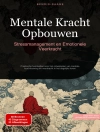This book focuses on cultural variations and perspectives in infant and early childhood mental health and describes parenting / caregiver-young child relationships across the globe, including countries in Europe, Asia, South America, South Africa, the Middle East, and the United States. It examines infant and early childhood assessment issues, such as infant-parent/caregiver observations that comprise an important component of assessment during the earliest years. In addition, the book presents different clinical interpretations, practices, and treatment approaches in infant mental health (e.g., evidence-based treatments and promising practices). It explores ways to help support and provide clinical interventions and treatment for infants, toddlers, and their families within the home, clinic, and community-based environments.
Key areas of coverage include:
- Systemic assessment of adverse childhood experiences (ACEs).
- Infant and early childhood mental health assessment in indigenous contexts.
- Psychodynamic approaches in infant mental health.
- Evidence-based therapeutic interventions for very young children.
- Community-based interventions in infant mental health.
WAIMH Handbook of Infant and Early Childhood Mental Health, Volume Two,
is a must-have reference for researchers, professors, and graduate students as well as clinicians and all related therapists and professionals in infancy and early child development, developmental psychology, pediatrics, child and adolescent psychiatry, clinical social work, public health and all related disciplines.
Jadual kandungan
Part 1. Cultural Context of Parenting and Infant Mental Health. – Chapter 1. Parenting and Infant Mental Health in Hong Kong.- Chapter 2. Parenting and Infant Mental Health in South Africa.- Chapter 3. Parenting and Infant Mental Health in Japan.- Chapter 4. Parenting and Infant Mental Health in European Countries.- Chapter 5. Parenting and Infant Mental Health in South America.- Chapter 6. Parenting and Infant Mental Health in the Middle East.-
Part 2. Infant and Early Childhood Mental Health Assessment .- Chapter 7. DC:0–5™ Diagnostic Classification of Mental Health and Developmental Disorders of Infancy and Early Childhood.- Chapter 8. Assessment and Screening for Early Detection.- Chapter 9. Parent/Caregiver Relationship Assessments.- Chapter 10. Systemic Assessment of Adverse Childhood Experiences.- Chapter 11. Assessment in Indigenous Contexts.- Chapter 12. Infant Observation.-
Part 3. Clinical Infant Mental Health .- Chapter 13. Infant-Parent Psychotherapy.- Chapter14. Child-Parent Psychotherapy for Toddlers.- Chapter 15. Psychodynamic Approaches in Infant Mental Health.- Chapter 16. Parent-Child Interaction Therapy with Toddlers.- Chapter 17. Reflective Supervision and Infant Mental Health.- Chapter 18. Circle of Security Parenting International.- Chapter 19. Fairstart.- Chapter 20. Evidence-Based Home Visiting Interventions.- Chapter 21. Community-Based Interventions in Infant Mental Health.- Chapter 22. International Infant Mental Health Interventions.
Mengenai Pengarang
Joy D. Osofsky, Ph.D. is a clinical and developmental psychologist, Ramsay Chair of Psychiatry and Barbara Lemann Professor of Child Welfare at Louisiana State University Health Sciences Center. She has published widely authoring or editing seven books on trauma in the lives of children. Dr. Osofsky is past president of ZERO to THREE and World Association for Infant Mental Health. She serves as Clinical Consultant on the Leadership team for Zero to Three Infant Toddler Court Program and Co-Principal Investigator for NCTSN Center, Terrorism and Disaster Coalition for Child and Family Resilience. In 2021, she was honored with the ZERO to THREE Lifetime Achievement Award.
Hiram E Fitzgerald, Ph D, IMH-E® IV is University Distinguished Professor Emeritus in the Department of Psychology at Michigan State University. His major areas of research include the study of infant and family development, risk, resilient and adverse childhood experiences, the impact of fathers on early child development, and the etiology of alcohol use disorders. He is past executive director of WAIMH, and is a Fellow of the American Psychological Association, and the Association of Psychological Science. He is a recipient of the designation “Honorary President” of the World Association of Infant Mental Health, and the ZERO to THREE Dolley Madison Lifetime Achievement Award.
Miri Keren, MD. is Assistant Clinical Professor Emeritus at the Tel Aviv University Sackler Medical School. Her main research interests are about infant psychopathology and diagnoses, eating disorders in infancy, parental psychopathology and parenting, parent-Infant relationships disorders, and PTSD of infancy. As President of the World Association of Infant Mental Health in the years 2012-2016, she has been very invested in the implementation of a declaration of Infant’s Rights. In 2000, she founded the Israeli WAIMH Affiliate and iscurrently its Honorary President, and she is Chairperson of the World Psychiatric Association Perinatal and Infant Mental Health Section. She received the WAIMH Lebovici Award in June 2021.
Kaija Pura, MD, Ph D. is Professor of Child Psychiatry in Tampere University, Finland, and Chief Physician in the Department of Child Psychiatry in Tampere University Hospital. She has authored or co-authored over 90 peer reviewed articles, chapters, and books on assessment and treatment of young children. She is a child mental health expert and advisor for the national children’s TV-program “Jyrkin ja Neposen kommervenkkejä”. She is currently an Associate Editor of the Infant Mental Health Journal, Executive Director of the World Association for Infant Mental Health, Vice President of the International Association for Child and Adolescent Psychiatry and Allied Professions, and President of the Finnish Association for Child and Adolescent Psychiatry.












